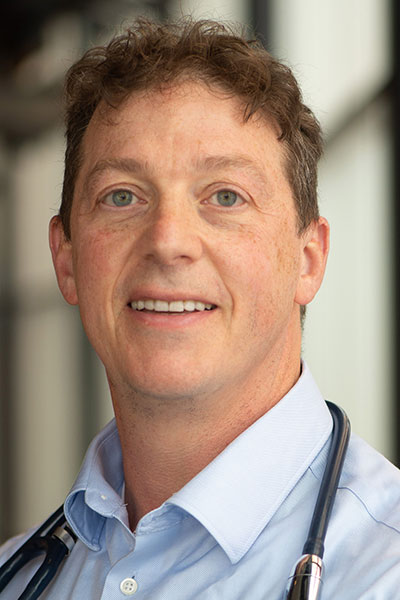A 2013 European Respiratory Society and American Thoracic Society paper reviewing the definition, evaluation, and treatment for severe asthma asserted that further research and treatment options for severe or therapy-resistant asthma were “increasingly recognized as a major unmet need.” More than a decade later, clinicians and researchers are still working to combat the debilitating symptoms affecting patients with severe asthma.

To continue the dialogue and advance this critical work, the ATS 2024 International Conference will host “Emerging Strategies in Severe Asthma in 2024 and Beyond” on Tuesday, May 21, from 2:15-3:45 p.m. PT. The conference will be held at the Marriott Marquis San Diego Marina in Pacific Ballroom 18-19 (Ground Floor, North Tower).
Last month, the Global Initiative for Asthma (GINA) released updated guidelines for managing and treating asthma. To start Tuesday’s session, Helen Reddel, PhD, MBBS, FRACP, professor at Macquarie University in Sydney, Australia, and chair of the GINA Science Committee, will review the most vital and noteworthy updates in the 2024 guidelines.
After Dr. Reddel, Celeste Porsbjerg, MD, PhD, professor of severe asthma at Bispebjerg Hospital, Copenhagen, Denmark, will present “Current and Future Targets and Biomarkers in Severe Asthma.”
“The field of asthma has evolved significantly over the last decade, and one of the most notable emerging concepts is novel biomarkers,” said Michael E. Wechsler, MD, MSc, professor of medicine at National Jewish Health and co-chair of this Scientific Symposium session.
There are currently three major biomarkers in severe asthma: eosinophils, exhaled nitric oxide, and Immunoglobulin E (IgE). However, there is a significant overlap between these biomarkers, necessitating the identification of additional biomarkers and other novel therapies to develop targeted, personalized treatments for individuals with asthma.
The next presentation will cover a relatively new concept in the discourse around asthma: remission.
“Remission is the notion that a person will have sustained control of their asthma. Usually, it’s evaluated at no less than a year, and during that year, they have no exacerbations, no corticosteroid use, normalization of lung function, and minimal symptoms that interfere with daily activity,” explained Dr. Wechsler. “The biological therapies available to us allow us to consider remission a realistic possibility.”
Widespread remission is still primarily an aspirational concept in 2024; Dr. Wechsler shared that only 10-40 percent of patients achieve remission when assigned appropriate biological therapy regimens.
Finally, Dr. Wechsler and Praveen Akuthota, MD, ATSF, professor of clinical medicine at the University of California, San Diego, and co-chair of this session, will look toward the future of the field by discussing vital considerations and benchmarks for the advancement of severe asthma research.
“We’ll look at future research questions like, ‘What can we offer patients with non-type 2 inflammation in asthma? Can we stop biologics in well-controlled patients and see if they can maintain control? What’s the best way to decide between one biologic versus another? What are other novel mechanisms we should be thinking about?’ Those are just a few of the unanswered questions we’d like to explore,” Dr. Wechsler said.
This session and the International Conference are supported by an independent medical educational grant from Chiesi USA, Inc. All CME sessions have been planned and implemented in accordance with the Accreditation Criteria of the Accreditation Council for Continuing Medical Education (ACCME®) and are free of the control of ineligible companies (formerly commercial interests).
Extend Your Learning Beyond San Francisco with ATS 2025 Conference Highlights

With so many valuable educational opportunities offered during the ATS 2025 International Conference, attendees are often forced to decide which sessions to prioritize. That’s why the Society is offering three ATS 2025 Conference Highlights packages for those unable to attend ATS 2025 San Francisco or attendees interested in continuing their education after the conference. Check out the packages and pick the one that’s right for you. Learn at your own pace, whenever and wherever you are!

